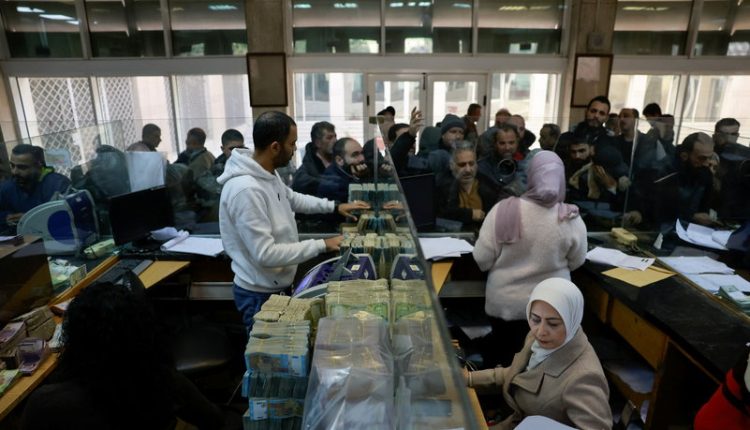Syria’s Central Bank Confirms Arrival of Currency Shipment from Russia
By Kardo Roj
DAMASCUS, Syria (North Press) – The Central Bank of Syria (CBS) confirmed on Friday the arrival of a shipment of Syrian banknotes from Russia via Damascus International Airport but dismissed widely circulated figures as inaccurate.
A CBS media representative told Syria’s state-run SANA news agency that while funds had indeed arrived, reports claiming the shipment contained 60 trillion Syrian pounds in 5,000-pound denominations were false and exaggerated.
“We urge reliance on official information and caution against spreading rumors,” the CBS official stated.
Conflicting Reports on the Shipment’s Value
On Thursday, various news outlets and social media pages speculated that a massive cash transfer from Russia was scheduled to arrive. However, reports from Sound of the Capital, citing a source within the Central Bank, clarified that the actual transferred amount was 300 billion Syrian pounds, far lower than what was rumored.
The source also revealed that these funds were part of an old agreement between the former Syrian government and Russia, signed before the ouster of former President Bashar al-Assad in December 2024.
According to the source, another larger installment of Syrian banknotes is expected to be sent from Russia at a later date.
Russia’s Role in Printing Syrian Currency
For years, Syria has relied on Russia for printing its currency, particularly after the Syrian pound collapsed due to prolonged economic sanctions and internal financial mismanagement. Under Assad’s rule, payments for printing the currency were allegedly made in foreign currency—directly from the presidential palace’s reserves, bypassing the Central Bank.
Following Assad’s removal and his escape to Moscow in December 2024, investigations surfaced alleging that he had siphoned off large amounts of money to Russia, further complicating Syria’s economic recovery.
What This Means for Syria’s Economy
Syria is currently in a fragile economic transition, with a new leadership trying to stabilize the currency and financial markets. The arrival of newly printed money could provide short-term relief but also raises concerns about inflation if not managed carefully.
The Syrian pound has plummeted in value over the past decade, leading to severe hyperinflation, reduced purchasing power, and increased poverty. The new Syrian administration is now under pressure to implement sound monetary policies and ensure financial stability.
The anticipated second shipment of currency from Russia could further impact Syria’s economic situation, depending on how it is handled by the Central Bank and financial authorities.

